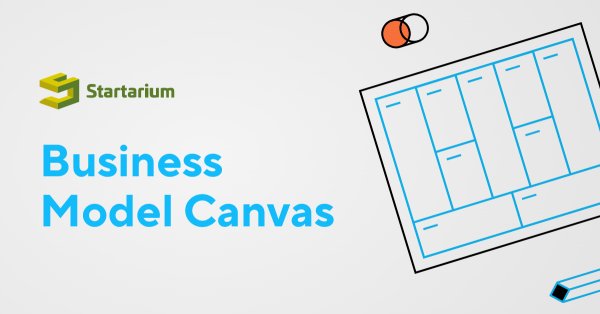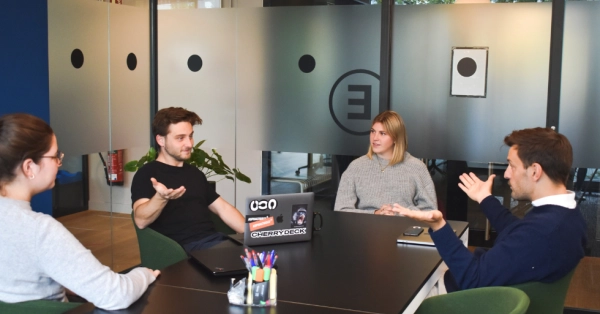When it comes to motivation, you’ve probably noticed some people find the right energy to engage in getting stuff done easier, but it surely is different for each one of us. Find out more in the article below about all the factors involved when it comes to motivation.

Especially in a creative work environment, people are most times united by their common mission and values – they may find meaning in their work, their creative drives being used to their full potential, the capacity of expressing themselves freely.
On a personal level, it’s somehow easier to identify what are those things that motivate you, but while working with other people, this becomes more challenging. Some people might find it easier to be motivated while being very autonomous, while others might activate their resources to get things done when others approve and support their work, mostly when they are feeling insecure about certain aspects of it.
When working with people, the question you should ask yourself is not if people are motivated, but what motivates them?
Good managers vs bad managers
As an employee, think about what are those things you appreciate, like and dislike most regarding your previous managers or team mates? The real question would be though, what will your employees' answers be? This might be a useful technique to test with your employees. Ask them to think about the worst manager they had, one who was very unfriendly and treated them very badly, but also, why did they do it?
List out what are those words that describe the behaviors and attitudes they did not like. Have the same exercise in stating the same for the best manager they had. This glossary of attitudes and behaviors will be your bible in understanding what are your employee’s expectations of you and it’s a very easy technique to check what their beliefs are. It’s also a cost-effective method, as you don’t need sophisticated methods or measuring instruments to identify the “vibe” of your team.
As you are taking into consideration all the things that people need in order to be the best at their job, try to question what positive results you as a manager or entrepreneur will be able to witness in your team. You will soon realize that this kind of positive attitude motivates your team, brings commitment and intentional beliefs.
There are 4 intentional beliefs that might appear in the workplace. Here we stated those you can identify if you manage to behave the way people expect you to:
- Having the mindset that allows them to go above their results, give their best and perform better.
- Having an intentional mindset in supporting the team or the organization and be there in times of need.
- Liking their job and staying longer in the organization, not being interested in finding another opportunity as they are encouraged and supported for their role.
- Having a growth mindset.
We can’t talk about these beliefs when people don’t feel like they are respected, listened to and when they don’t get what they need, when they need it. So, the real struggle is not if we’re motivated or not, but why are we motivated, what drives us to try new things and what are those reasons in which we move towards a certain direction or to another.
What are the 3 main psychological needs?
1. The need for autonomy – spotted easier in kids, mostly when they are younger, they want to do things on their own. As humans, we have this need to do things on our own, feel like we have a choice and that we are free to do as we please. When we start to feel like one of these things is missing, we start getting unmotivated and disconnected from what we’re doing.
2. The need for connection – in a sense, we talk about that need to connect with people, to have an honest relationship with them, feel respected and respect in return. If respect is not there, we start to feel disconnected. On the other hand, this need translates into feeling like what we do is meaningful and has a purpose. For example, if someone has a task that he/she considers not relevant to what they do or want to do, they won’t invest as much effort as when they are given tasks that have meaning for them.
3. The need for competence – the need to feel skilled and capable of finishing tasks. We have an innate need to evolve and engage in new activities. This need goes along for almost our entire life, but it might happen that when reaching adulthood, it changes its intensity. That usually happens because people might’ve received negative feedback while learning something, might’ve been left alone in the process or felt discouraged in their first working environments and that issue made them more reactive and frustrated now when it comes to this habit.
So, if all three of the above needs are met every day in our workplace and in ourselves, we feel good, fulfilled, balanced and connected.
How to get to know the people you work and yourself better?
We are all different – the things that motivate us are different, like you’ve learnt earlier, but we also thrive in very different environments.
If you are curious to know about the personality structure and strong points of the people you work with, you might consider using some tools that allow your team to know each other better:
A Belbin 'Team Role' is one of nine clusters of behavioral attributes identified by Dr Meredith Belbin's research at Henley as being effective in order to facilitate team progress.
They include: Resource Investigator, Teamworker and Co-ordinator (the Social roles); Plant, Monitor Evaluator and Specialist (the Thinking roles), and Shaper, Implementer and Completer Finisher (the Action or Task roles).
The purpose of the Myers-Briggs Type Indicator personality inventory is to make the theory of psychological types described by C. G. Jung understandable and useful in people's lives.
They include: Inspector, Crafter, Protector, Artist, Advocate, Mediator, Architect, Thinker, Persuader, Director, Performer, Caregiver, Champion, Giver, Debater, Commander
Saboteurs test - a tool that helps you identify your biggest internal saboteurs, that may interfere with you reaching your full potential. If you discover them and are mindful of their presence, you may make progress more easily in areas of your (personal and professional) life you may be struggling with.























